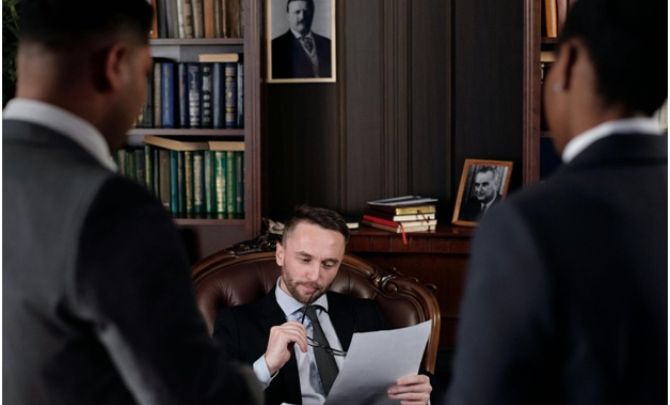When life throws unexpected challenges your way, finding the right legal counselor can make all the difference. Whether you’re dealing with a complex business dispute, a personal legal issue, or navigating unfamiliar legal waters, having a skilled and trustworthy attorney by your side can offer peace of mind and strategic guidance. But how do you choose the right one amidst countless options? It’s not just about credentials—it’s about finding someone who understands your unique situation, communicates effectively, and genuinely cares about your outcome.
In this post, we’ll explore eight essential tips to help you find the right legal counselor when facing a difficult problem. From assessing experience to evaluating compatibility, these tips will empower you to make an informed decision and feel confident in your legal journey. Let’s dive in.
Identify Your Specific Legal Needs
Before choosing a legal counselor, clearly define the type of legal issue you’re facing. Law is a broad field, and attorneys specialize in different areas, such as family law, business law, criminal defense, or personal injury. Hiring a lawyer with expertise in your specific legal matter increases your chances of a favorable outcome.
Consider the complexity of your case—some situations require highly specialized attorneys with extensive experience in niche areas. If you’re dealing with a contract dispute, a corporate lawyer would be ideal, whereas a family lawyer is best suited for divorce or custody matters. Identifying your legal needs early helps you narrow down your options and find the right fit.
Research Legal Counselors Online
The internet is a powerful tool for finding a qualified legal counselor. Law firm websites, legal directories, and bar association listings can provide essential details about an attorney’s expertise, credentials, and client reviews.
Reading testimonials and case studies can help you assess their track record. For instance, you can search for Gold Coast lawyers to find experienced professionals in that region who specialize in your specific legal matter. Many attorneys also offer free initial consultations, allowing you to evaluate their approach and communication style before committing. Online research helps you narrow down your options and find the best legal representation.
Check Qualifications and Experience
Not all lawyers have the same level of expertise, so it’s essential to verify their qualifications and experience. Start by checking their education, bar certification, and years of practice. A lawyer who has been handling cases similar to yours for many years is more likely to anticipate challenges and develop effective strategies.
Look at their case history—have they successfully represented clients in similar situations? Experience isn’t just about the number of years in practice; it’s also about the depth of knowledge in a particular area of law. Choosing a lawyer with the right background ensures they have the skills to navigate your case effectively.
Seek Recommendations from Trusted Sources
Word-of-mouth referrals can be incredibly valuable when searching for a legal counselor. Friends, family, or colleagues who have faced similar legal issues can provide honest feedback on their experiences with specific lawyers. Personal recommendations often highlight aspects that online reviews might overlook, such as reliability, communication skills, and overall client satisfaction.
If you don’t know anyone who has hired a lawyer in your area of need, consider reaching out to professional networks or industry groups. Even if a recommended attorney isn’t the right fit, they might be able to refer you to a more suitable legal expert.
Assess Communication and Availability
A good lawyer should not only be knowledgeable but also accessible and responsive. Legal issues can be stressful, and working with an attorney who communicates clearly can ease your concerns. During your initial consultation, pay attention to how well they explain legal concepts and whether they listen to your concerns.
Do they respond to emails and phone calls in a timely manner? Are they willing to update you regularly on your case? Poor communication can lead to misunderstandings and frustration, so choose a lawyer who prioritizes transparency and keeps you informed throughout the legal process.
Consider Their Fee Structure and Costs
Legal services can be expensive, so it’s crucial to understand an attorney’s fee structure before hiring them. Some lawyers charge hourly rates, while others offer flat fees, contingency fees, or retainer agreements. Be upfront about your budget and ask for a breakdown of potential costs, including court fees and administrative expenses.
A good lawyer should provide a clear and honest explanation of their billing practices. Avoid attorneys who are vague about fees or seem more focused on payments than on your legal needs. While cost is important, don’t choose an attorney based solely on price—expertise and experience should also be key factors in your decision.
Schedule Consultations with Multiple Lawyers
Meeting with multiple attorneys before making a decision allows you to compare their expertise, communication style, and overall approach to your case. Most lawyers offer initial consultations, either free or at a reduced rate. Use this opportunity to ask about their experience with similar cases, their strategy for handling your situation, and potential outcomes.
Take note of how comfortable you feel discussing your case with them. A lawyer-client relationship requires trust and open communication, so it’s essential to choose someone who makes you feel confident and supported. Evaluating different attorneys ensures you make an informed and well-balanced decision.
Trust Your Instincts
While research and recommendations are important, trusting your instincts is equally crucial when selecting a legal counselor. If something feels off during a consultation—whether it’s a lack of transparency, poor communication, or an aggressive sales pitch—it’s a red flag. Your lawyer should be someone you feel comfortable with, as you’ll be sharing personal and sensitive information with them.
Pay attention to how they treat you as a potential client. Do they genuinely care about your case, or do they seem more interested in closing a deal? Choosing an attorney who aligns with your values and priorities can make a significant difference in your legal journey.

Finding the right legal counselor can be a daunting task, but taking the time to research and evaluate your options ensures you make an informed decision. From identifying your specific legal needs to assessing experience, communication, and costs, each step plays a crucial role in selecting the right attorney. Trust your instincts and choose someone who not only has the expertise but also genuinely cares about your case. The right legal support can provide clarity, peace of mind, and the best possible outcome for your situation. With these eight tips, you’ll be well-equipped to find the right legal counselor when facing a difficult problem.
